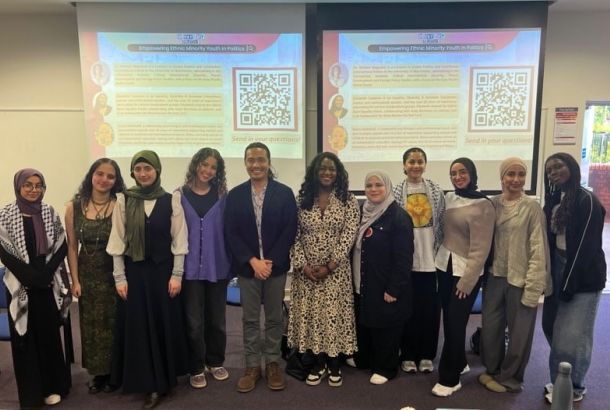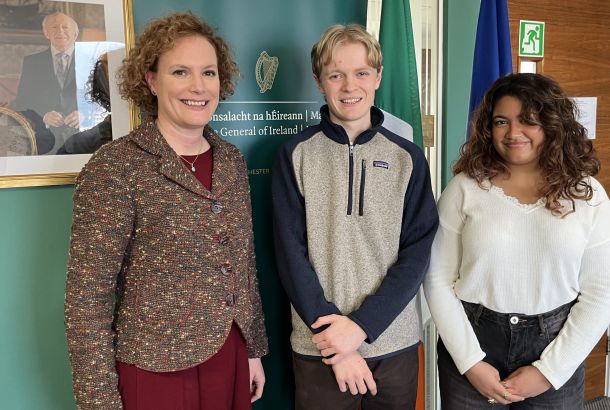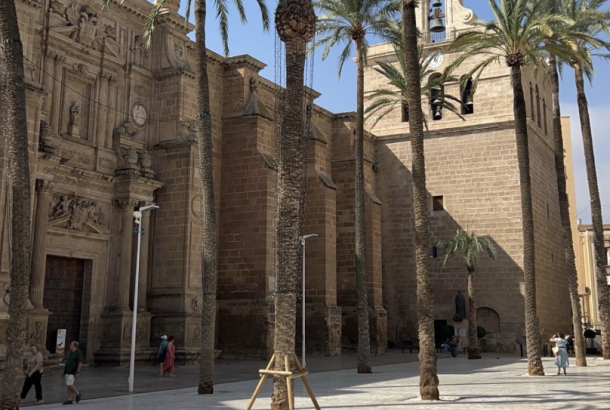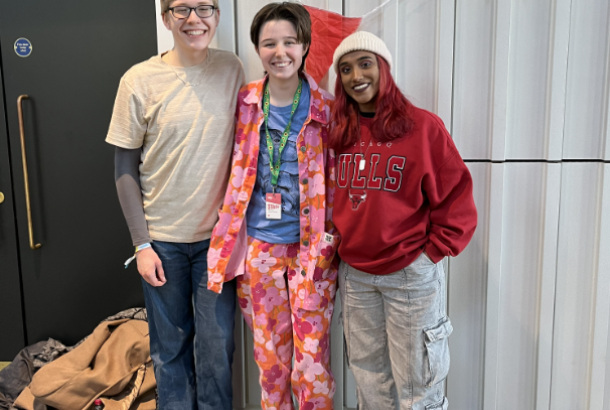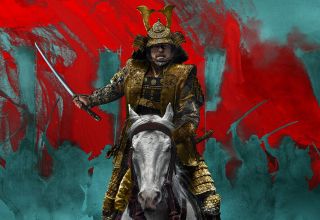So, where are you from? Experiences of a “Third Culture Kid” at university
By annaheider
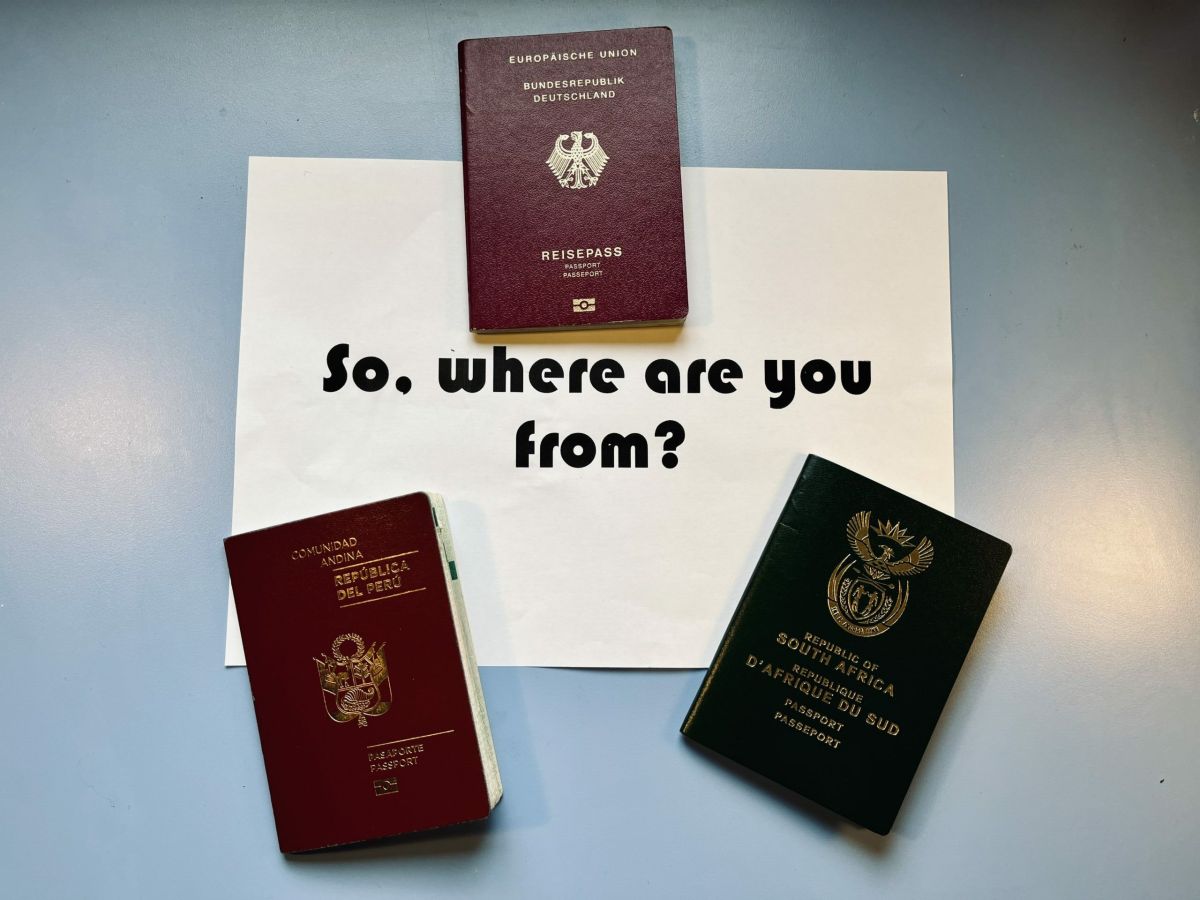
Most articles about being a third culture kid start with the question “So where are you from?” and the author continues to describe that for a third culture kid (TCK) this is not such a simple query. Next, they explain what a third culture kid is. I will give you my third culture credentials: I was born in Germany to two German parents but spent all my life in Latin America, mostly in Lima, Peru.
During my time in Manchester, I have been given a variety of guesses about where I am from. Eastern Europe, Wales, Canada, and the United States stand out. The most surprising one is Wales, considering I do not sound like that at all. Now, in order to follow the typical structures of these articles, the next few lines describe what a TCK is. A third culture kid is someone who grows up in a different culture than their first. They feel connected to both and to people who are also culturally diverse.
The experiences of TCK students are unique even when compared to international students.
I interviewed a first-year student who wishes to be anonymous – I will call her Lucia – on what it is like to be a third culture kid in Manchester. She was born in Russia and grew up in Spain before deciding to come to Manchester to be surrounded by the English language and experience a different country. One of the cultural shocks she described was how early British people ate dinner compared to Spain.
Another TCK at the University of Manchester is Matthew Chandler, a UK citizen who grew up all around the world. Since the age of three, he has been in Spain and Qatar but mostly Thailand; last year he returned to the UK to study Business Accounting. I asked him about whether he struggles with his identity as a third culture kid.
He contrasted the battle with the jolly old “where are you from” question with British students and how the question can be relaxingly easy for them. “To someone who has lived in the UK their whole life [it is] such a simple question. Yet, I find difficulty answering such a simple question.”
Even though he feels more in touch with Thai culture, he describes how his dad was a key connector to his English side. TCKs can also experience reverse culture shock when they return to their country of origin or passport country. When I asked Matthew about this he said that his British cultural attitudes and perspectives were fostered at home but that there were still behaviours which he hadn’t realised were not normal in the UK. For example, some friends were confused when he started taking his shoes off at the entrance of the house (in Thailand it is disrespectful not to do so). Similarly, he feels that pointing is extremely impolite, another Thai norm he is accustomed to.
TCKs can adapt to different cultures easily, are open-minded and can speak many languages. But there are also many challenges they face when they come to university. Many struggle to make friends because they fear losing them, which often stems from their experiences moving around so much. This adds to a sense of isolation and can negatively impact students’ mental health.
About 40% of TCKs leave the first institution they attend. Anxiety, depression, and loneliness are common for TCKs during this period of their life. Tamara Lai interviewed TCK students at the University of Edinburgh for her undergraduate dissertation in which she found many are socially isolated due to certain aspects of British society – highlighting the drinking culture, which many dislike.
TCKs can be supported through societies, inviting them to hang out without pressure for them to drink, and having others who are interested in who they are, their uniqueness, and their cultures. The University of Bristol is one of a few higher education institutions that has a Third Culture Kid Society. Their website summing up the all too familiar problem:
“Does this sound familiar:
Stranger: ‘Where are you from?’
You: ‘It’s complicated.'”
TCKs deserve a mandated break from this interaction. The society’s diverse activities, from movie nights, language mingles, and international potluck allow students to come and find people they relate to. But it is also a safe space for students who feel uncomfortable in monocultural spaces.
The TCK society in Bristol pointed out “There can be a real struggle with a sense of belonging when most societies focus on specific cultural identities.” Both Matthew and Lucia have referenced that speaking with people who have similar cultural backgrounds or are multicultural themselves is easier to do.
“I feel like I connect better with international students because they have similar experiences of coming to a new country,” Lucia told me. For Matthew, meeting other students from Asia sparks an instant connection. TCKs often have issues understanding students from a single culture.
“Also, when talking to people about my upbringing in Bangkok, I can tell they don’t have any understanding of how it is and I can’t blame them for that, but then it just leaves you thinking: what’s the point? They won’t get it, and then they do end up seeing you as more foreign in a small way and that can impact the relationship,” Matthew explained.
Surprisingly, the University of Manchester does not have a TCK society of its own, even though 25% of its students are international. When asked about whether they recommended a TCK society at Manchester, Bristol’s TCK society was encouraging.
“Absolutely, you’d be so surprised by how many people fit into the category of TCK, especially at large unis like Bristol and Manchester. It will hopefully provide a really nice community for TCKs.” Lucia has joined several different societies including the Spanish, Russian, Swimming and Women in Business society, with the Spanish society being the one she attends the most. Yet, when asked about it she agreed that she would join a more multicultural society.
Another opportunity for TCKs and societies would be “sober socials”, which Madison Peroni at the University of Birmingham reported about for The Tab. She described how students feel pressured to drink, especially at initiations, or to be more social or to feel like they are not missing out.
Those who attended the sober social society described a sense of isolation and how they felt like they were creating fewer connections with other students in other societies. Creating alcohol-free activities could create a new space for those who do not participate in a heavy drinking culture or even those who do not drink at all for cultural or religious reasons.
Being an international or TCK student comes with difficulties, but being multicultural is also fulfilling. Being able to switch languages, adapting and being comfortable with different cultures can be considered a superpower.
Hopefully, as a university, we can collectively appreciate these experiences that TCKs face and create a more welcoming social life for those who still feel isolated. So, I guess to bring this article full circle, it’s my turn to ask you “Where are you from?”
